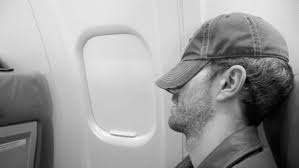With summer vacations approaching, doctors in the UAE stress the importance of staying active, especially on long-haul flights, to avoid health risks such as blood clots. Exercising, staying hydrated, keeping entertained, and eating wisely are crucial, say medics.
The cramped seats and limited legroom on long flights can make sleeping tempting. However, staying active and engaged helps counteract the challenges of air travel and prevents stiffness.
Common Flight-Related Health Issues
Doctors outlined common problems during long-haul flights. Dr. Mahesh Cirasanambati, Managing Director of Physical Medicine and Rehabilitation at Burjeel Holdings, noted, “Deep Vein Thrombosis (DVT), back and neck pain, shoulder injuries from lifting heavy luggage, dehydration, and motion sickness are common issues.”
Healthcare professionals emphasize that staying active reduces stress, improves circulation, relaxes the body, and boosts mood.
Tips for Staying Active
Medics advise that with preparation, your journey can be as pleasant as the destination. Once the seatbelt sign is off, it’s recommended to walk for three to five minutes whenever possible.
Dr. Laiba Ashfaq, Physiotherapist at Aman Lil Afia Clinic, suggested simple exercises to prevent stiffness. “Inhale through your nose and exhale through your mouth 10 to 15 times. Lift your feet off the floor and move them in a circular motion, then reverse direction for 15 seconds,” she explained.
“Keep your heel on the floor and lift the front of your feet towards you. Hold for a second, then flatten your feet 10 to 15 times. Raise your heel while keeping the front of your feet on the floor, hold for a second, then flatten your heel 15 times. Bend your knee towards your chest, hold for two to five seconds, then relax. Repeat for the other leg, ten times each,” she added.
Importance of Hydration
Proper hydration is essential to reduce the risk of clots and cramps. Dr. Hina Salam Siddiqui, Specialist in Family Medicine at Zulekha Medical Centre, Al Khan, advised, “Drink plenty of water to prevent muscle cramps. Do neck stretches by tilting your head side to side and forward.”
Staying entertained and eating wisely also help maintain energy levels. “Roll your shoulders forward and backward to relieve tension. Arm stretches are important; extend your arms overhead and to the sides. Wearing compression socks can improve circulation and reduce the risk of DVT,” added Siddiqui.


